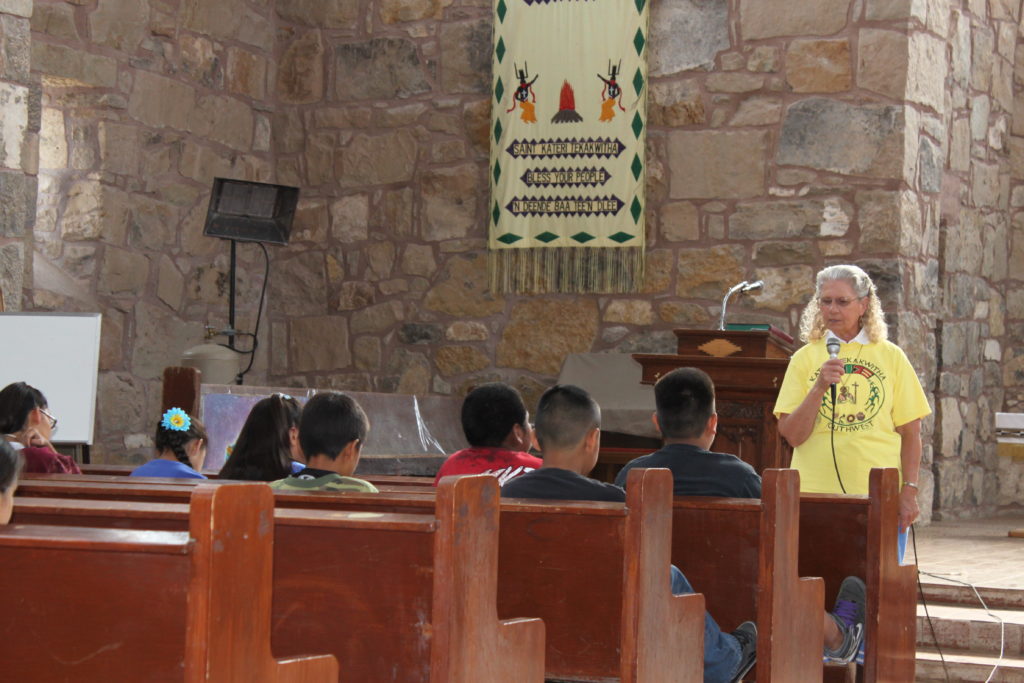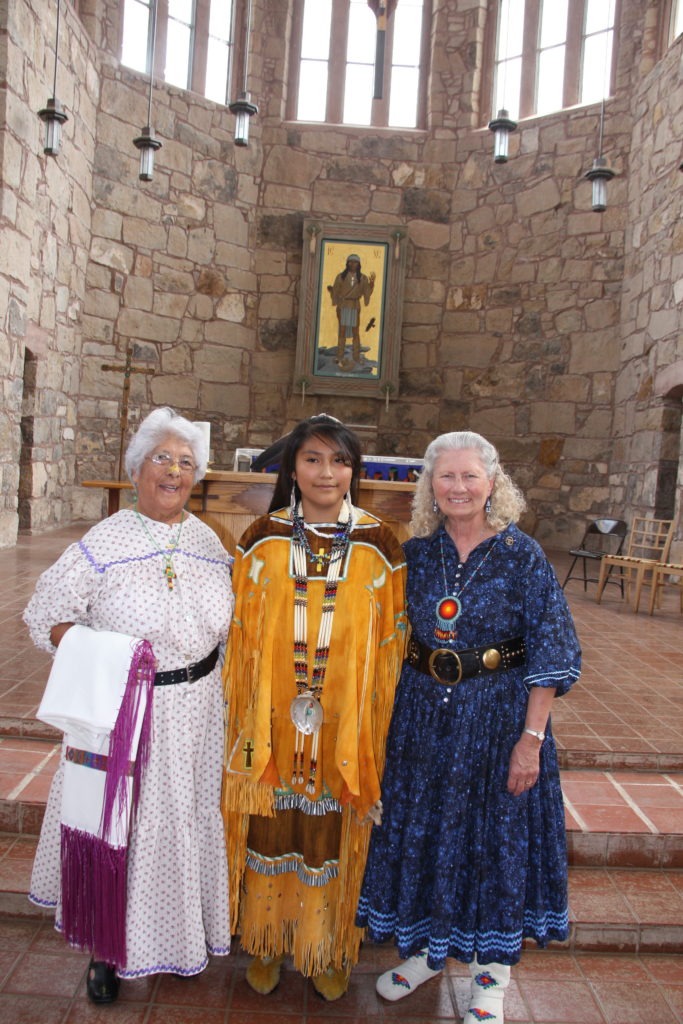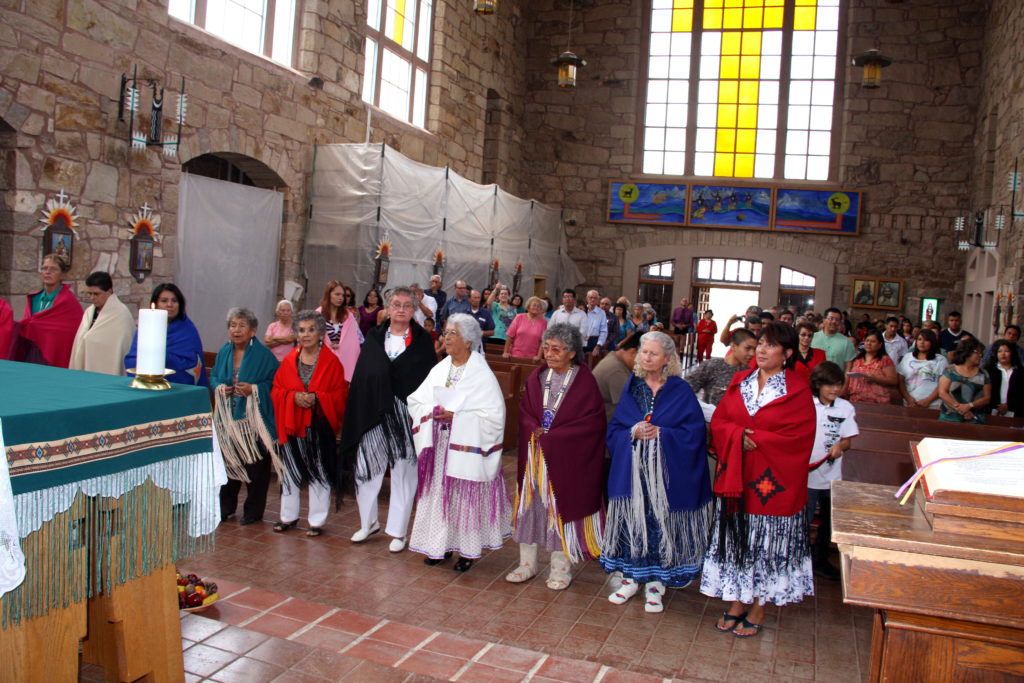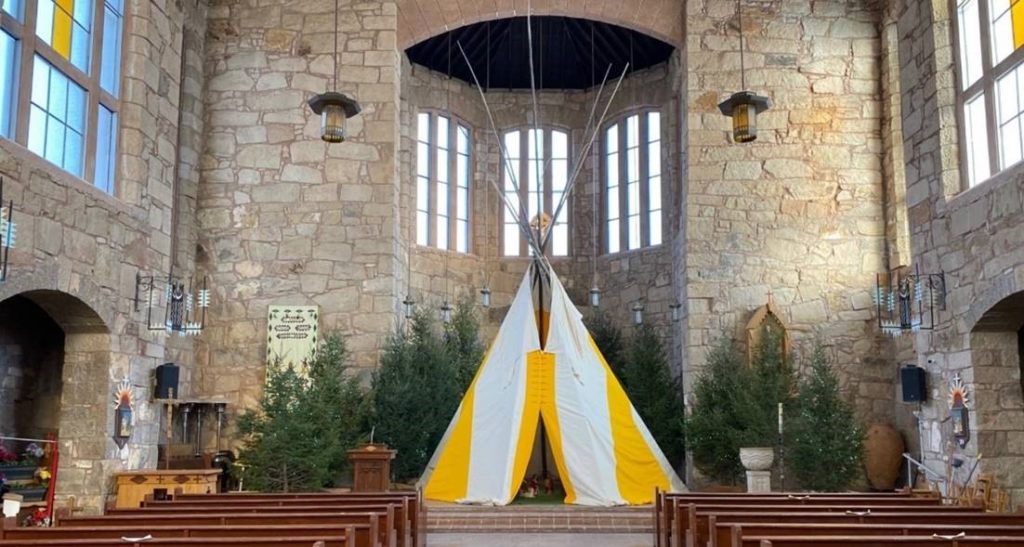St. Joseph Apache Mission is a beautiful, stone church that stretches into the desert sky in the Diocese of Las Cruces, New Mexico. It is here that the Catholic presence endures among the Mescalero Apache tribe.
Franciscan friars built the church in 1920. Their presence brought comfort, hope and renewed faith to the indigenous community. Today their ministry continues with Sister Robert-Ann Hecker, OSF, a cheerful member of the Franciscan Sisters of Perpetual Help.
She has served the Apache for 35 years. Catholic Extension Society supports her salary in the Diocese of Las Cruces.
Sister Hecker arrived at the parish in 1985 and began teaching catechism. Now, she knows many of today’s parents from when they were children themselves.

In her role as pastoral life coordinator, she serves the needs of the parish and leads the religious education and RCIA programs. She also directs the church’s food bank, helping to provide more than 4,500 pounds of food annually.
Roughly a third of families on the reservation live below the poverty line. Her work at the parish helps improve the quality of life for many people—spiritually, emotionally and physically:
I find God in the people. Their faith is strong.”

Integrating Sacred Traditions
Apache traditions and values are deeply respected at St. Joseph through art and seasonal ceremonies, which connect powerfully with the people’s Catholic faith.

Smoke, for example, is a sacred element used to purify. Sometimes before Mass, they fill the church with smoke, cleansing both the sacred place of worship and the parishioners themselves. The ritual is especially important on Ash Wednesday, merging beautifully with the Catholic holy day of prayer and penance.
“It just seems so perfect to purify us, purify the church, to begin Lent with that idea of penance,” Sister Hecker said.
For the Advent season, a large teepee graces the altar, representing the stable in the Nativity scene. At the traditional Midnight Mass, a girl who is near confirmation age carries up a figure of the newly born Jesus—strapped in an Apache cradle board—to place him in the teepee. She blesses him with cattail pollen. This practice honors the Apache “coming of age” rite ceremony, a highly important tradition in a girl’s life.

Present during the highs and lows
In times of both gladness and sadness, Sister Hecker remains a steady presence in the Diocese of Las Cruces. At one point, the community was grieving the loss of seven Apache who died from COVID-19 in one week. She knew each of them and their families.
“One of our singers, a faith-filled man who greatly respected the church, had died of COVID shortly before Christmas,” she said. “His son sang in his father’s place that night as a touching tribute to him.”
She attended the graveside services for each victim. Sister Hecker says she tries to be present:
To be with them in the good times and the bad—in their joys and in their sorrows.”
The pandemic is not the first tragedy to befall the Mescalero Apache Reservation. In recent years, the community lost five young people to suicide in a three month period.
“It was like an epidemic, in that it seemed almost catching,” she said.
St. Joseph Apache Mission began outreach by sending a minister to the middle and high schools to speak with the students during lunch. The group is called “Bik’ egu’ inda’ n daa bin zhaa,’” which means “We are children of God” in Apache. It is part of a faith formation program supported by Catholic Extension Society.
Since the program began, there have been no suicides among the youth on the reservation.
Through her ministry, Sister Hecker accompanies the Apache through every aspect of their life—from moments of celebration to times of need and difficulty.
“Even after 35 years,” she said, “there is always some new way you can help people.”


